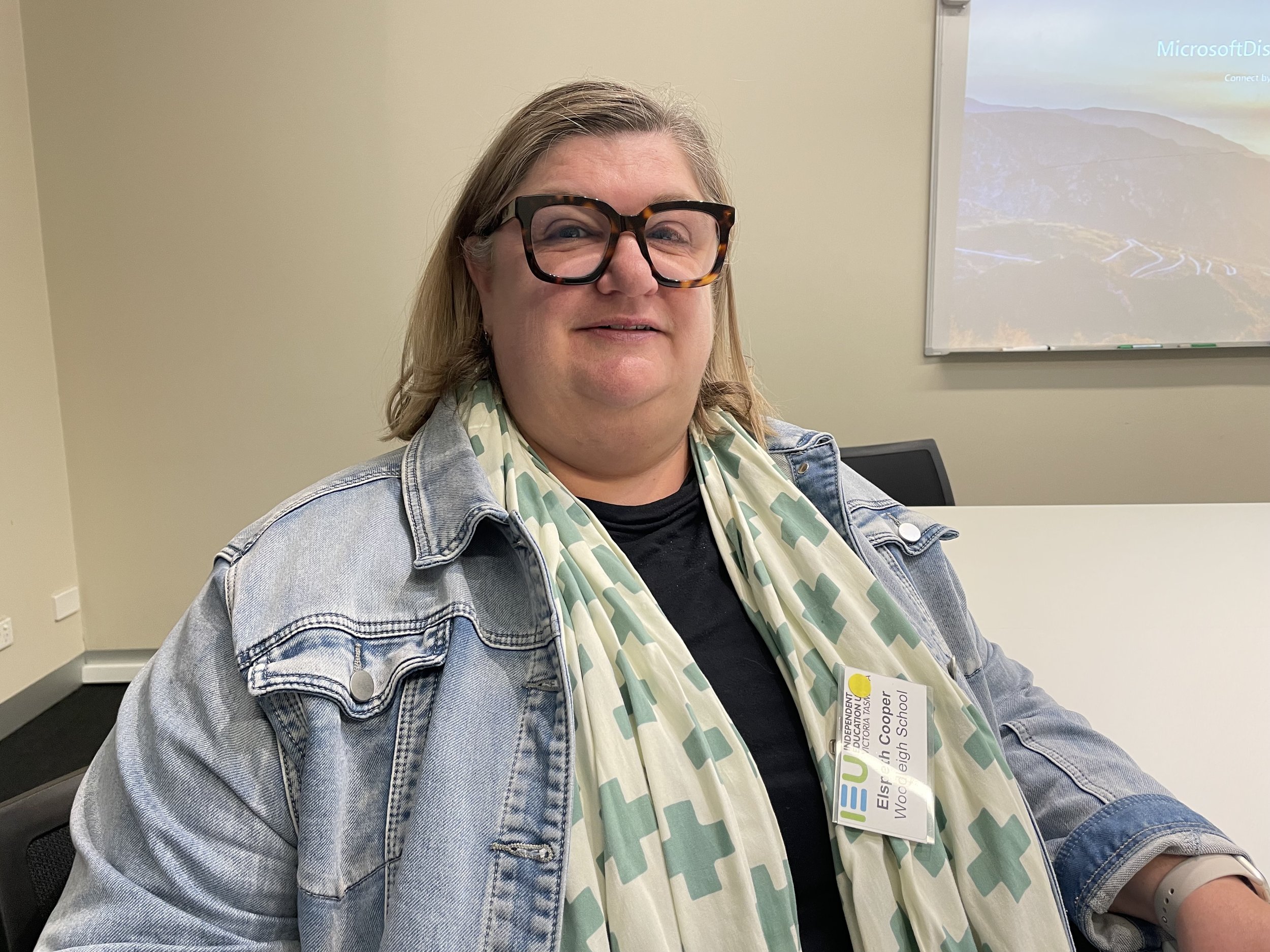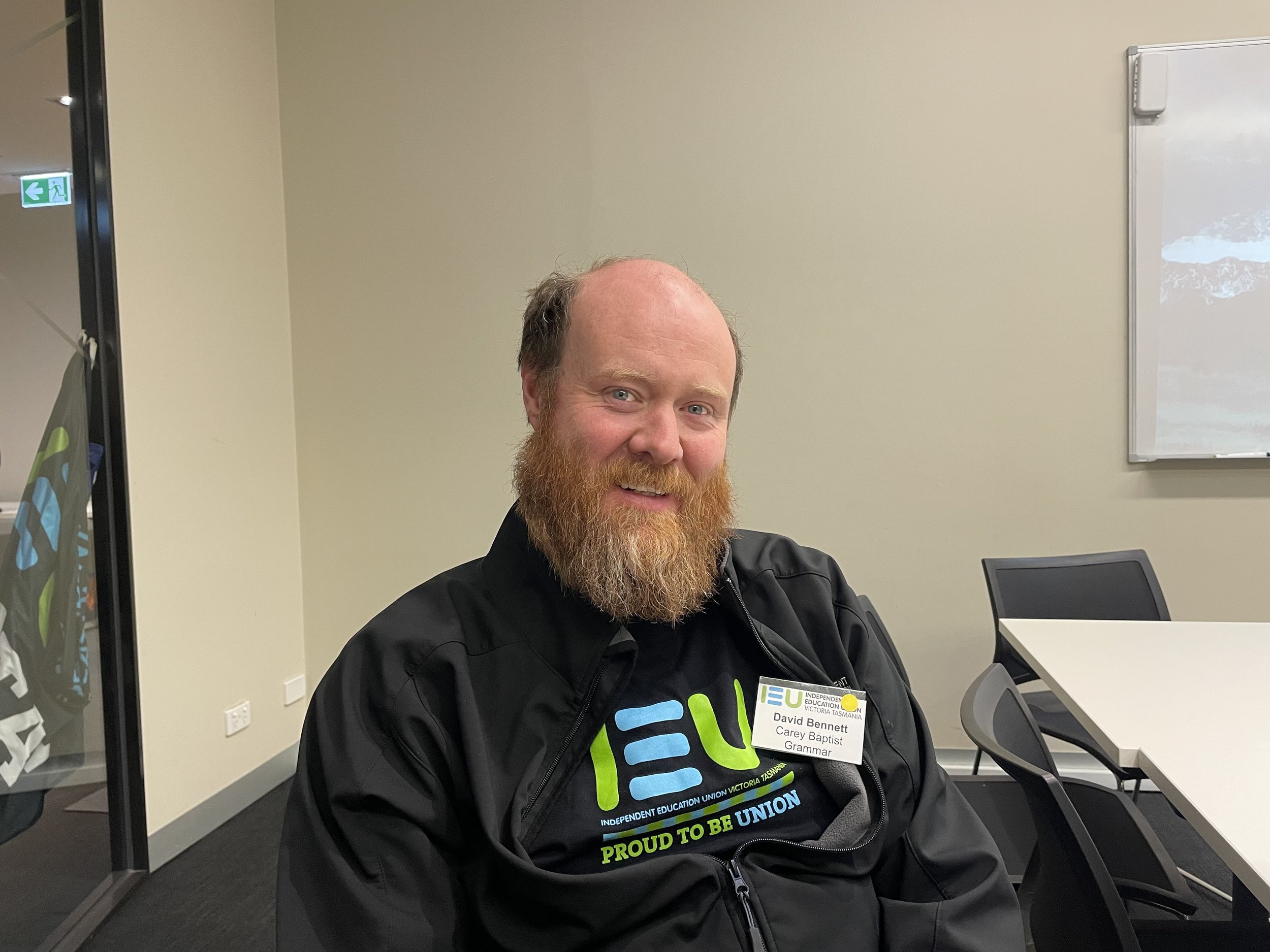Insights from the frontliners: IEU Reps on their roles
At October’s highly successful Rep training day, Reps from very different schools spoke to The Point about why they are in the union and what they are working on now.
“Working things through one on one”
Elspeth Cooper, Woodleigh School, Langwarrin
Elspeth has been an IEU member for seven years, but a Rep for only one, and she is negotiating an Agreement for the first time. She’s involved in fortnightly EBA meetings with the school principal, the business manager and staff members from all three campuses of her school. At the Rep training day, she was seeking “some additional knowledge” to expedite that negotiating process, particularly hints on winning pay increases and workload improvements.
Elspeth’s other passion is staff wellbeing, so she’s keen to ensure the best possible work life balance for her colleagues. “For appropriate staff wellbeing to be maintained an appropriate EBA needs to be negotiated.”
She’s also striving for a reduction in face-to-face teaching time and a significant pay increase, in particular for general staff who are currently “behind on pay scales compared to the rest of the sector”.
Elspeth appreciates the “consistency” of her school’s meetings.
“We’re having really good conversations during those meetings. The school is telling us what their part of the bargain is, and we’re expressing our needs and wants as well, so at the moment its going ok.” At the next meeting, the school was due to put an offer on the table.
Elspeth also has a separate meeting with the principal and the school’s health and safety Rep every two weeks.
“We have breakfast together just to discuss how things are travelling in the school. He’s really keen to have his finger on the pulse of what staff are thinking and feeling.”
Elspeth thinks such enlightened leadership is “very different to most other schools” and sees it as one of the advantages of being at an independent school – “you can work through things one on one”.
Elspeth said her principal wanted to put together a good deal.
“I think we’re on the same page – teaching is getting harder and harder, and you need to attract the best and brightest as well and in order to do that you have to have the best deal on the table.”
She says if working conditions and pay don’t improve, “we’ll see a lot of teachers moving away from the sector”.
“I think schools are becoming more aware of that reality as we do lose people, and they struggle to fill roles that we would have filled quite easily previously.”
Practising what he believes
David Bennett, Carey Baptist Grammar, Kew
David was attending his second training day, and he was keen to “hone my skills as a delegate looking to improve my representation of comrades at work”.
“We’ve got an EBA coming up next year and the last EBA didn’t go very well, so I just want to make sure I can help get the best outcome for the staff.”
David signed for the role as a Rep by accident, after not paying close attention to what he signed at a meeting!
But he was happy to accept the responsibility.
“I thought it was a good opportunity. I’ve always been a worker’s rights advocate. I grew up in a very conservative rural area and I was very much against the grain there, being very progressive in my beliefs.
“So with the role I just saw it as an opportunity to get some experience in practising what I believe.”
David has begun preparation for next year’s negotiations by meetings with members and his IEU Organiser.
He “100%” endorses proposed changes to IEU rules which would enable more members to be recognised, protected and empowered as union representatives.
“I think it would make a big difference because I’m already leaning on others, two of whom have been the delegate in the past or at other schools, so they know about how workload and industrial demands have crept up on teachers.”
David says the biggest challenge he’s facing is the “corporatisation” of his workplace which has brought “a lot of rapid change”. Snaring new members is also an “ongoing battle” and he’s keen to get more administrative and support staff on board.
He’s distilled his recruitment spiel to five points, a “nice short, sharp easy read” but admits getting younger people over the line can be tough.
“I get it, there’s always things in life, like new mortgages, new there’s commitments, new family members – I’ve been there, I understand – but I really try to emphasise that the moment when you need the union its often too late if you’re not already in.
“It’s literally that insurance policy that’s there in your corner behind you supporting you if anything does go wrong.”


